TMS Therapy
- Inpatient Rehab
- Outpatient Rehab
- Intensive Outpatient Programs
- Inpatient Vs. Outpatient Rehab
- Gender-Specific Treatment
- Luxury Rehab
- Short-Term Rehab Options
- Sober Living Homes
- Intervention
- Treatment Process
- Treatment Therapies
- Faith-Based Rehab
- Support Groups
- Paying for Rehab
- Rehab & Insurance
- During Rehab
- After Rehab
What Is TMS?
Transcranial Magnetic Stimulation (TMS) is a noninvasive procedure that has shown positive results in treating depression. Typically used as a repetitive treatment, also called rTMS, it can be done as a walk-in procedure where an electromagnet is placed against the patient’s head, near the forehead, and small magnetic bursts are released to stimulate the part of the brain responsible for mood control.
TMS is typically used for patients who suffer from depression but have not seen improvement from traditional treatment in the past. While it has shown positive results, there is still much research to be done.
Common Questions About Rehab
How TMS Works
TMS works by targeting the part of the brain responsible for mood control and depression. It is believed that people who suffer from depression are dealing with a part of their brain that isn’t as active as it should be. The stimulation of the electromagnetic coil activates the part of the brain that is underperforming. While the exact understanding of this isn’t known, there is positive evidence that the stimulation has activated the brain and relieved the symptoms of depression.
While there are some modifications in how the treatment is done, it is generally accepted that the strength and frequency of the pulses should be determined based on the patient’s motor control threshold. This is determined by the twitches that can be observed by the doctor performing the therapy. Since the procedure is noninvasive and done without sedation, a person can drive themselves home afterwards and not have to worry about missing additional work. In certain cases, however, TMS should not be performed. It is important to be open about everything with the doctor to know if TMS is right for your situation. Make sure to tell them if:
- You have some kind of implant
- You are pregnant
- You are taking any medications
- You have a history of seizures or epilepsy
- You suffer from a mental health disorder
- You have a pre-existing medical condition
Check if my insurance covers rehab
Addiction Center is not affiliated with any insurance.
Using TMS to Treat Addiction
Treatment specialists have started using TMS in treatment for the dangerous symptoms that come with addiction, particularly treating people who may be suffering from depression as a symptom of withdrawal. TMS or rTMS can help stimulate their brain and return control over their mood.
The use of rTMS has also shown positive signs in fighting someone’s cravings, though the exact reasoning is unknown. In a double-blind study, 11 out of 16 people who received rTMS therapy for a Cocaine addiction were free of their addiction symptoms after 1 month of TMS. Out of the group who received the standard treatment, who only received the standard treatment, only 3 were drug free in the same time.
Though these studies are promising, there is still more testing to be done, and one should not treat this therapy as the end-all-be-all of addiction treatment. Like anything, it should only be included into a plan that involves other therapies and treatment medication. As the treatment has yet to be FDA approved, it should be treated with great caution.
Side Effects Of TMS
Given that the use of TMS to treat addiction is still fairly recent, there have not been many studies to identify the effects in the long-term. Though some institutions have been founded based on the possibilities of using TMS, it is still difficult to say why the practice is working in the exact way that it does. Part of the draw of the procedure is that it doesn’t require any additional drugs to fight someone’s craving, removing the temptation that some fall victim to while in recovery. Like anything, TMS is not without its side effects. However, the common effects are minimal, and anything more severe is a rare occurrence. Common side effects include:
- Headaches
- Discomfort at the site of stimulation
- Tingling, spasms, or twitching of muscles
- Lightheadedness
More severe effects are possible, but unlikely. It would seem that as long as the proper precautions are taken, there is little risk for more dangerous effects. These potential, more extreme side effects of rTMS include:
- Seizures
- Mania in people suffering from bipolar disorder
- Hearing loss if proper ear protection is not worn
Looking for a place to start?
Join the thousands of people that have called a treatment provider for rehab information.
Free and confidential
Available 24/7
Access to professional treatment
Seeking Treatment And TMS
Seeking recovery from addiction is often a harder process than people realize. There isn’t a 1-stop shop to treat addiction. Every person is different, and what may work for 1 person won’t necessarily work for someone else. If you or someone you love have suffered a relapse after going through rehabilitation, this is not the end of the road. Rather, the approach to treatment needs to be adjusted. If TMS is something you believe you could benefit from, then contact a treatment provider. They can also talk to you about other rehab options.
Published:
Author
Cooper Smith

-
Cooper Smith earned his Bachelor’s in Writing for Entertainment from Full Sail University. While he was initially interested in a career in television, he saw an issue in his community and felt compelled to do something more. Now, he uses his knowledge to reach out to people who may need help and make the public aware of issues we are facing as a society. When he isn’t behind a computer, Cooper travels somewhere new.
- More from Cooper Smith
Reviewed by Certified Addiction Professional:
David Hampton

A survivor of addiction himself, David Hampton is a Certified Professional Recovery Coach (CPRC) and a member of the National Association of Alcohol and Drug Abuse Counselors (NAADAC).
- More from David Hampton
Sources


Recovery Starts Today
Call Now For Addiction Support

Tarzana Recovery Center – TRC
Tarzana , CA
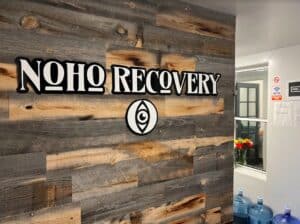





Boca Recovery Center – Indiana
Bloomington , IN

Newport Academy – Teen Treatment Center
Fairfield , CT

Symetria Recovery – Fort Worth
Fort Worth , TX

Boca Recovery Center – New Jersey
Galloway , NJ

Recovery Unplugged – Harrison House of Northern Virginia
Annandale , VA

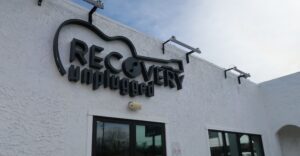
Recovery Unplugged Austin Treatment Center
Austin , TX
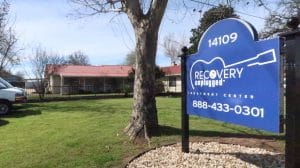
Recovery Unplugged – Austin Rehab Center
Riviera Beach , TX
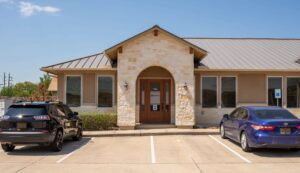
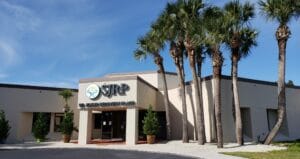
St. John’s Recovery Place – Crescent City
Crescent City , FL